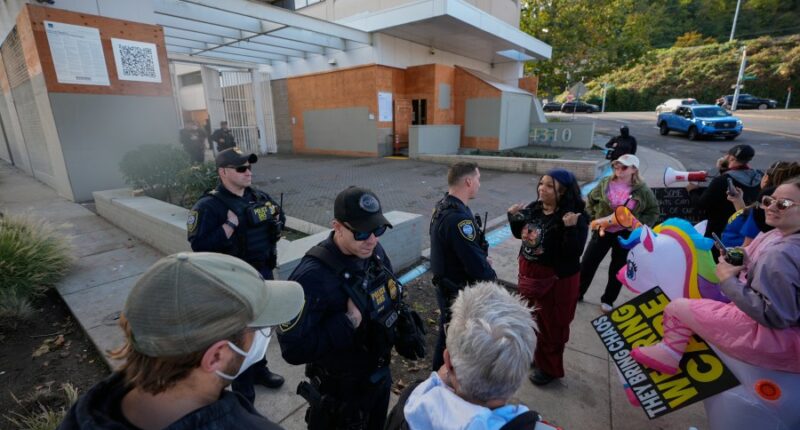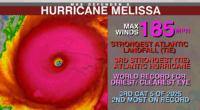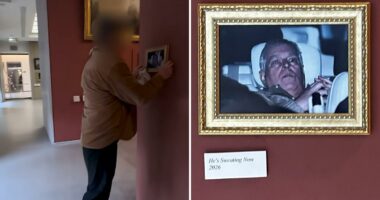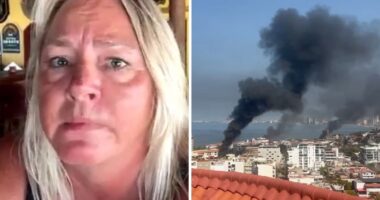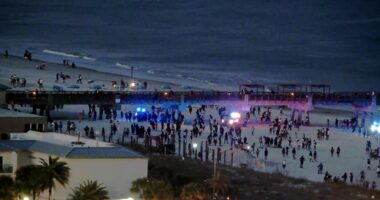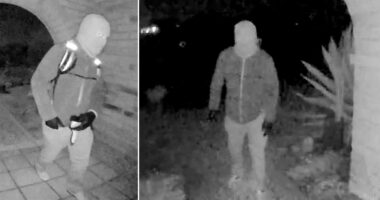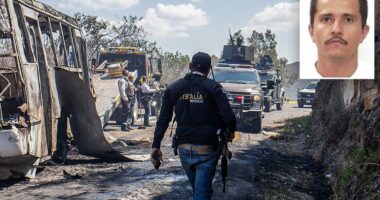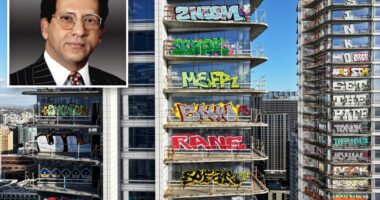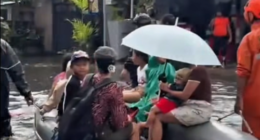Share this @internewscast.com

The federal trial addressing whether former President Donald Trump had the authority to deploy the National Guard to Portland, Oregon, is set to commence on Wednesday. The proceedings will feature testimony from local police officials who claim that federal agents stationed at the U.S. Immigration and Customs Enforcement (ICE) building in the city have escalated protests through their use of excessive force in recent weeks.
Overseeing the trial in Portland is U.S. District Court Judge Karin Immergut, appointed by Trump. The legal battle originates from a lawsuit filed by both the city of Portland and the state of Oregon against the Trump administration, aiming to halt the deployment of federal troops.
Judge Immergut has previously issued two temporary restraining orders in this case, effectively suspending the deployment while the lawsuit is underway. In her rulings, she determined that Trump had failed to meet the congressional conditions required for domestic military use, criticizing his description of Portland as “war ravaged” as being “simply untethered to the facts.”
One of these restraining orders was temporarily halted by a three-judge panel from the 9th U.S. Court of Appeals. However, on Tuesday evening, the appeals court overturned this decision, opting to revisit the case with an expanded 11-judge panel.
This intricate case unfolds as cities led by Democrats, including Chicago—which has launched its own lawsuit—contest Trump’s military interventions. These cities argue that the president has not satisfied the legal criteria necessary for troop deployment and assert that such actions infringe upon state sovereignty. Conversely, the Trump administration defends the troop presence as essential for maintaining law enforcement operations amid the protests.
Portland’s ICE facility, located just outside the downtown area, has become a focal point for nightly demonstrations that surged in intensity in June, culminating in police declaring one protest a riot. Although smaller confrontations have persisted since then, federal officers have resorted to using tear gas to disperse crowds, which have often included counterprotesters and live-streamers.
During the trial, witnesses are expected to take the stand for both sides and face cross-examination. The federal defendants will call officials from ICE, the Defense Department and the Federal Protective Service, the agency that provides security for federal buildings.
The administration argues that it has had to shuffle Department of Homeland Security agents from elsewhere around the country to respond to the protests, showing that it has been unable to enforce the law with regular forces — one of the conditions set by Congress for calling out the National Guard. It has also characterized the protests as a “rebellion” or “danger of rebellion” — another of the conditions.
The state and city argue that federal officers have at times used force that appears to be “needless and arbitrary.”
“They have deployed tear gas and pepper balls on small numbers of nonviolent protesters outside of the ICE building repeatedly, in some cases without apparent need or provocation, and without first exhausting de-escalation or other less-aggressive options,” the plaintiffs wrote in a trial brief.
Portland police have also been “gassed by federal law enforcement” and, on at least one occasion, hit with a crowd-control projectile, the brief said.
The Trump administration says the Portland Police Bureau has been unwilling to help control the protests, describing local authorities in a trial brief as “unhelpful and at times hostile.”
“The record is replete with evidence of the PPB failing to provide assistance when federal officials have requested it,” Justice Department attorneys wrote.
The police say they have made arrests when crimes have been committed, but that they also must respect the protesters’ First Amendment rights.
Communication between the federal and local authorities worsened as the federal agents surged to the building “without a clear command and control structure,” the state and city said.
“To list just one illustrative example, at one point pepper balls were shot in the direction of a PPB officer,” the trial brief said. “When confronted, federal officials responded, ‘help or get out of the way.’”
In Chicago, police officers have similarly been exposed to tear gas deployed by federal officials against protesters.
The Portland trial is expected to last three days.
___
Johnson reported from Seattle.
